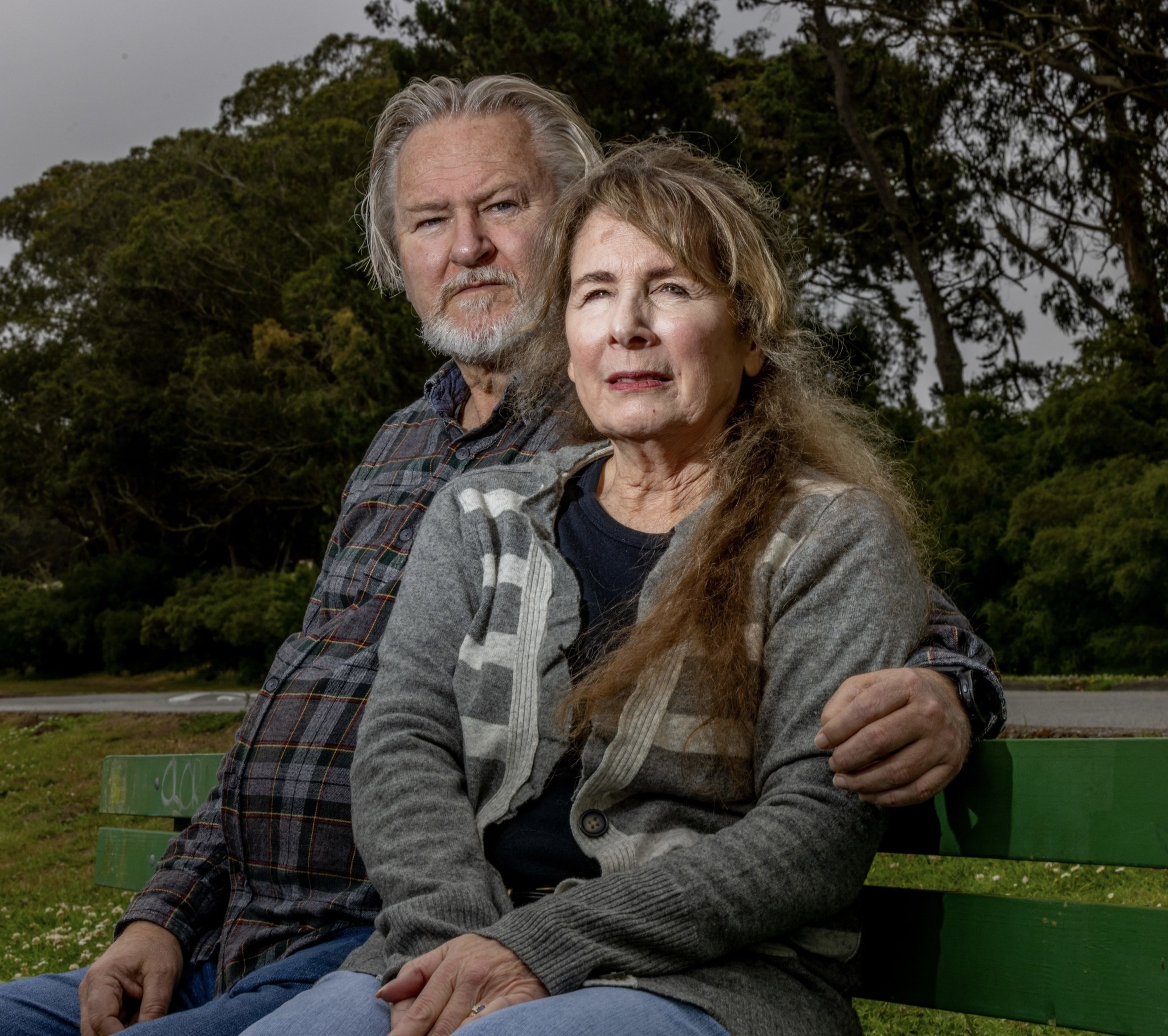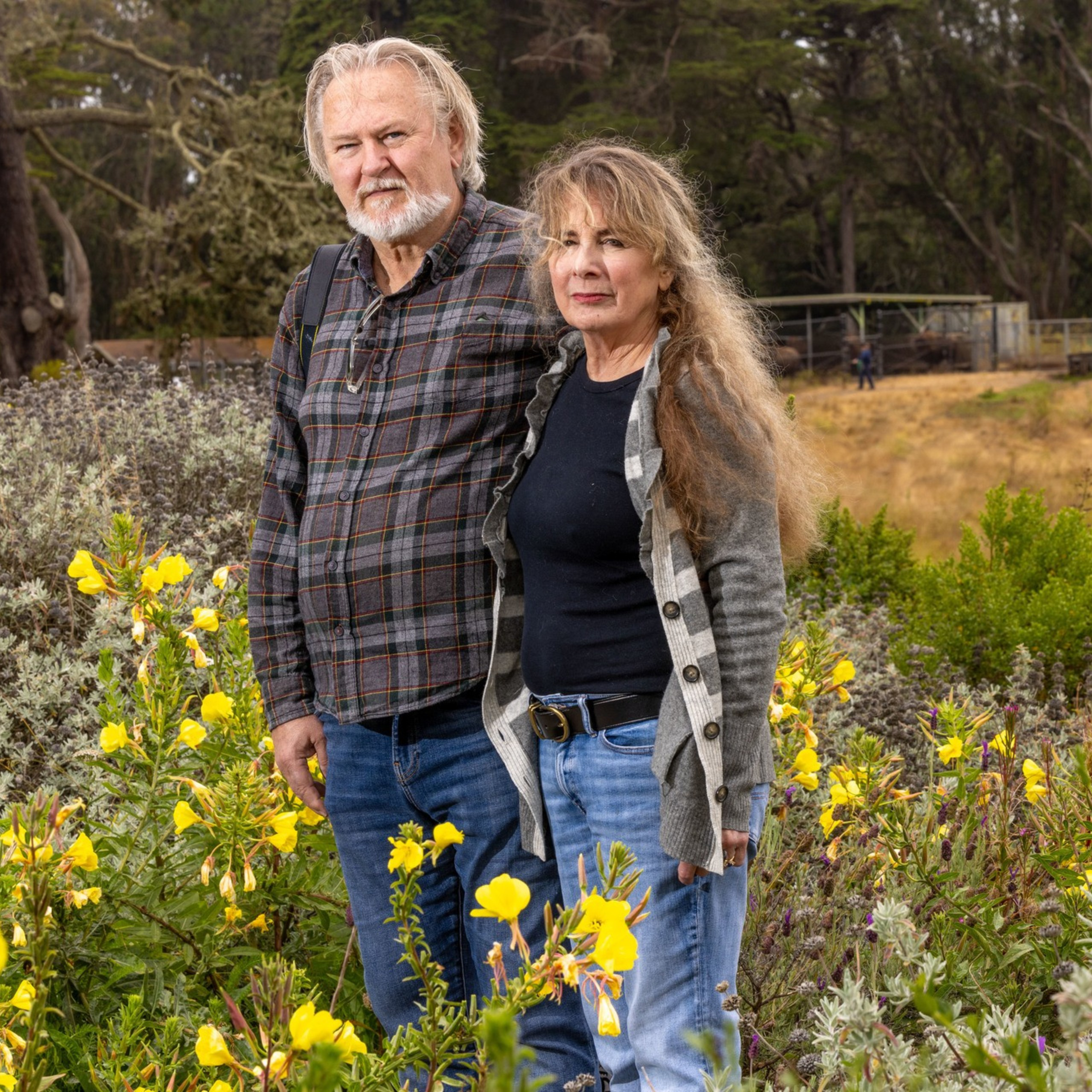A Monterey couple who were robbed at gunpoint in Golden Gate Park say they are shocked and frustrated with San Francisco’s criminal justice system after the teens accused of robbing them were charged as juveniles and freed from custody.
Curt and Shelley Chaffee told The Standard they are stunned by what they perceive as a lack of accountability after attending three juvenile court hearings via Zoom for the two 17-year-olds who allegedly robbed them of a Nikon camera as they were visiting the park’s bison paddock on May 14.
“One held a gun on me while the other grabbed my wife and screamed, ‘Don’t die for the camera!'” Curt Chaffee, 65, said. Shelley was then thrown to the ground, injuring her elbow, the couple said.
Artist Shelley Chaffee was taking reference photos of the bison for her oil paintings but was instead left without a camera and with a large yellow and purple bruise.
“The physical injuries healed pretty quickly,” she said. “The mental part took a little bit, the PTSD.”
After tossing Curt’s cell phone into a nearby ditch, the suspects ran back to their car and drove off. The couple flagged down a park worker and asked her to call 911.
Soon after, police briefly chased the suspects’ vehicle along Richmond District streets before ending the pursuit due to safety concerns. Moments later, the vehicle crashed into a car before smashing into an apartment building at Eighth Avenue and Cabrillo Street, displacing one resident.

San Francisco police confirmed officers responded to the robbery at around 10:30 a.m. on May 14. After fleeing the crash scene on foot, the teens were arrested and booked on suspicion of robbery, conspiracy, receiving stolen property, elder abuse and related gun charges, police said.
The Chaffees said they positively identified the suspects as the two who robbed them, believing justice would soon be served. However, their relief was short-lived.
“We still cannot believe what has taken place since,” Curt said. “We had no idea that what would happen next could honestly be described as 50% performative art and 50% collecting a paycheck.”
He said that instead of being forced to answer for their crimes, the teens were “smothered by people, social workers, defense attorneys, probation officers, whatever, that were totally insulating them.”
“They didn’t have to respond. They didn’t have to answer any questions,” Curt Chaffee said. “They didn’t even admit that they did it.”

The suspects, who spent about two weeks in juvenile hall custody, were released at their second hearing on May 28 when a judge said “to the visible joy of everyone but my wife and I, that he could see no reason why they should not be sent home,” Curt Chaffee said in an email to The Standard.
Curt said a family friend who works as an attorney in Monterey told him he saw no reason the 17-year-olds couldn’t be charged as adults.
“Everything goes out the window when it’s a 17-year-old,” Curt Chaffee said. “They want to rehab them. Well, we’re fine with that, but you can’t rehab people without some kind of penalty, right? I mean not sending them home to watch video games and scroll TikTok after two weeks.”
But Christopher F. Morales, a San Francisco trial attorney and former San Mateo County public defender, said many factors go into any decision to try juveniles as adults. Morales noted that, under District Attorney Brooke Jenkins, 16- and 17-year-olds are only being tried as adults for particularly heinous crimes, like murders, rapes and kidnappings.

“A lot of folks get robbed sadly in Golden Gate Park,” said Morales, who lives in San Francisco. “This is not an extraordinary case; it’s poor behavior by the juveniles, but doesn’t rise to the level” set by Jenkins. Given that the suspects are 17 and that the judges have discretion to hold them until age 25, “these kids could be in danger of doing a long stretch into their twenties,” he added.
The case is ongoing, with at least one more hearing scheduled on Aug. 7. The Standard was unable to verify the couple’s account of the proceedings or the suspects’ release because juvenile cases are not public.
The San Francisco District Attorney’s Office said in a statement that it “fights for justice for victims of crime in the courtroom and does everything we can to help victims heal while helping them understand and navigate the criminal justice system.”

After noting that the case was pending, the DA’s office said it would continue to work to address the victims’ concerns and answer their questions.
“What makes our role as prosecutors difficult is our obligation to balance the interests of justice for victims while ensuring that consequences are fair and appropriate for offenders,” the office said. “Unfortunately, we often experience different viewpoints on these issues. In all cases, we will do everything we can to resolve our cases fairly, balancing the victim’s wishes, protecting public safety and what we believe is appropriate accountability for the offenders involved.”
San Francisco Superior Court spokesperson Ann E. Donlan said in a statement that victims, witness advocates or the district attorney may notify the court of any concerns about proceedings.
Donlan added that under the state’s code of judicial ethics, “a judge shall not make any public comment about a pending or impending proceeding in any court.”
The couple, who describe themselves as Democrats and “fairly progressive,” said they are speaking out because they believe the public needs to know how San Francisco is applying juvenile justice laws, especially toward offenders who are about to become legal adults.
“If the public knew what was going on behind the purposely closed doors, in closed hearings, they would be rightfully outraged,” Curt said.

